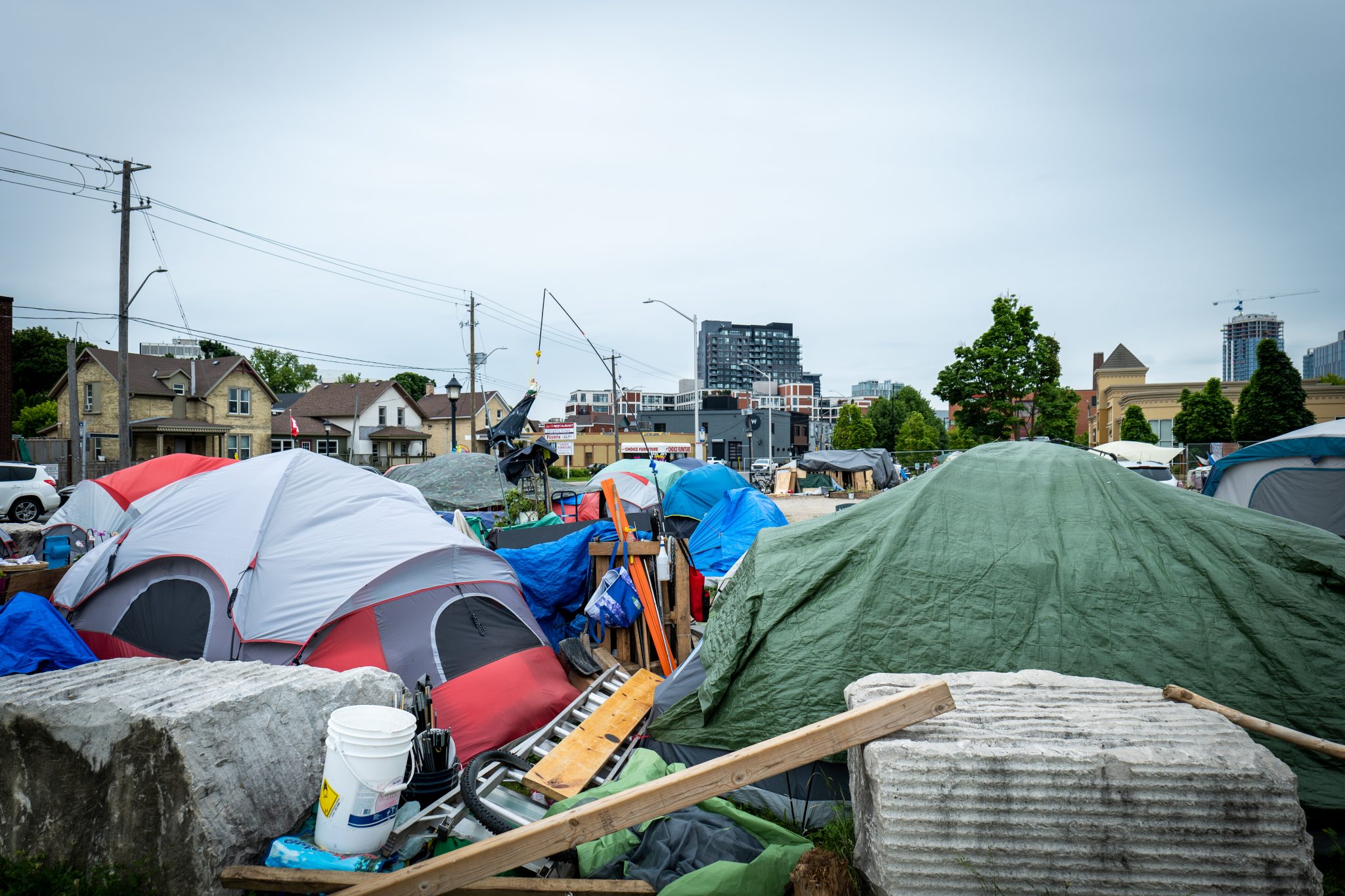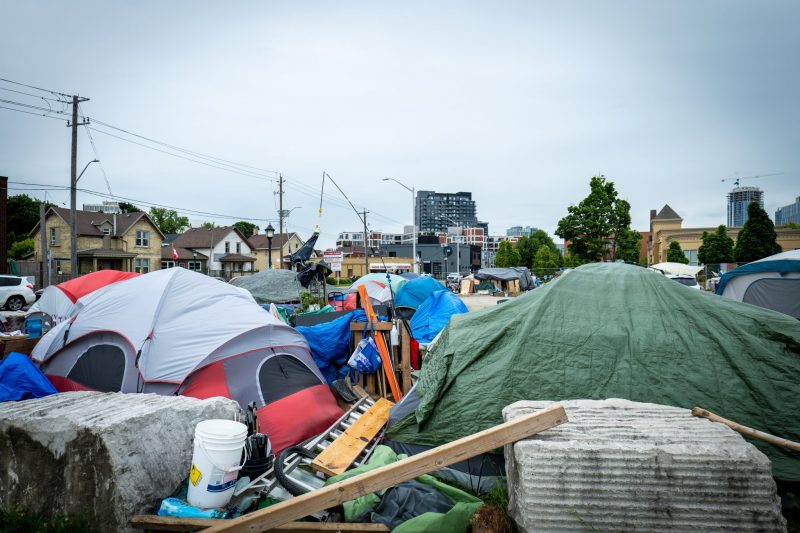Application to have homeless encampment removed declined by Ontario Superior Court of Justice


The region of Waterloo’s application to have a homeless encampment removed from 100 Victoria Street was declined by The Ontario Superior Court of Justice.
“The first reaction I had was a sense of relief because it is the middle of winter and forcing people to leave encampments can be a matter of life and death for people who live in those encampments,” Laura Pin, Assistant Professor in the Political Science Department and expert witness for Waterloo Region Community Legal Services in the case, said.
According to the Canadian Observatory on Homelessness, homeless encampments are defined as an “outdoor location with a visible structure that can take many forms, such as tents, shanties, or shacks, where two or more individuals live.”
Justice M.J Valente declared the encampment was not in violation of the region’s bylaw as the number of homeless persons in the region exceeds the amount of available shelter beds.
“I think what resonated with me about the decision more than anything else was that it is not just about the number of homeless people. One of the main criteria for determining that we can’t evict the residents in these encampments is that the number of homeless people exceeds the number of beds accessible in shelters, but it is not that simple, that is just one of many criteria. The other being the actual accessibility of the shelters,” Hannah McGurk, Master of Applied Politics Graduate, said.
The case cited the Canadian Charter of Rights and Freedoms. As illustrated by Pin, “They put forward two challenges, one based on Section Seven of The Charter, which is the right to life, liberty and security of the person and the judge found that [Section Seven of The Charter] was violated in terms of trying to enforce an eviction of encampment residences.”
“They also put forward a challenge based on Section Fifteen of the Charter, which is the equality rights section. That says all people despite gender, Indigenous status, disability, race ethnicity, have the right to equal benefit from The Charter. The judge did not find that there was a Section Fifteen violation,” said Pin.
The decision in itself brings different perspectives.
“The decision reflects a move forward from only regarding whether or not people are violating bylaw into protecting their rights as humans …” Victoria Marshall, Master of Applied Politics Graduate, said.
“From our perspective, I think this was the right decision,” said McGurk. “In the decision I think the controversy or the challenge is the risk encampments can pose to the community and those who are not experiencing unsheltered homelessness. There are a lot of people that see them as a health risk and they go through a ton of other issues, like dwelling on public property …”
A discussion surrounding shelter spaces coincides with homeless encampments.
“Moving to evict people living in an encampment would be a short term solution because it does not do anything to provide those people with housing,” said Pin. “The way that human rights norms identify the right to housing, it is not a shelter space, it is not temporary accommodations because shelters, they are not homes, they are not permanent housing …”
“It also has to be considered that some residents of encampments do not want to live in shelters …” said Marshall. “There are some people living in encampments because that is where they feel safest not just because there are no shelters available.”
“People experiencing homelessness are often dealing with a variety of physical and mental disabilities, often experiencing substance use, may have histories of trauma so just the existence of shelter spaces is not sufficient,” said Pin. “ Even if the region were to increase the number of shelter spaces, the court ruling in this case found that they would need to prove that they are accessible and low barrier for folks.”
“If the region is able to enhance that accessibility [referring to safety, eligibility, who can reside in a shelter, when they are able to come in, sobriety restrictions] I think these are all things that went into the decision and it wasn’t just about the number of homeless people living in the region at the time,” said McGurk.
“I think we should have shelters, we need them, but the way the current shelter system is constituted, it is not able to address all of the needs of the people experiencing homelessness,” said Pin.
The full decision can be found on the CBC’s website.
“Now that this ruling is out there at the provincial level, any court cases about this that are seen in the future will need to take this decision as precedent … ” said Marshall.


